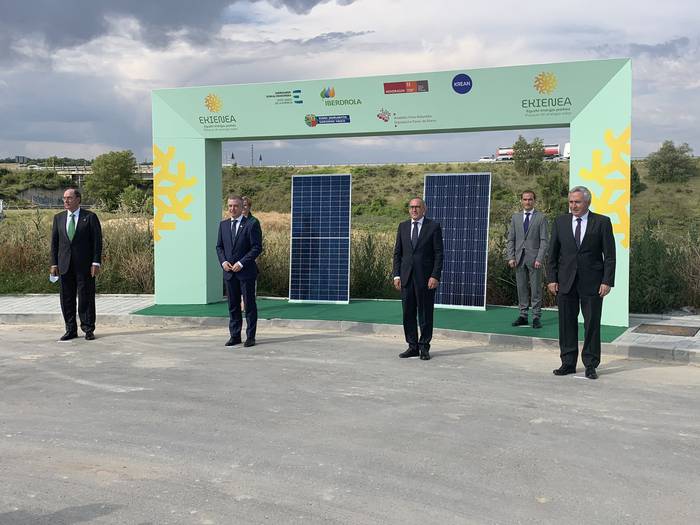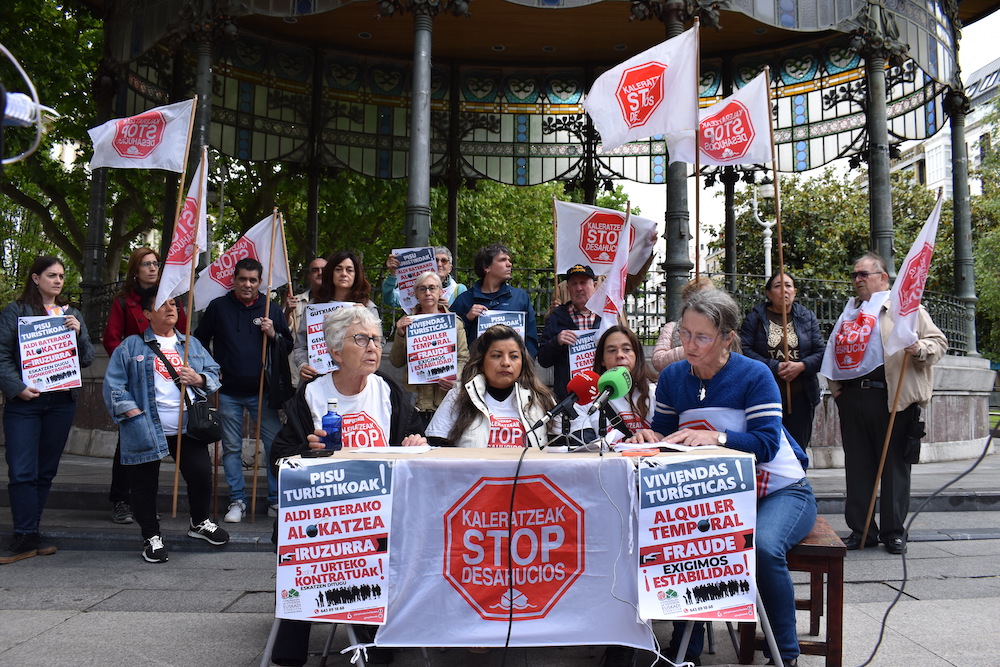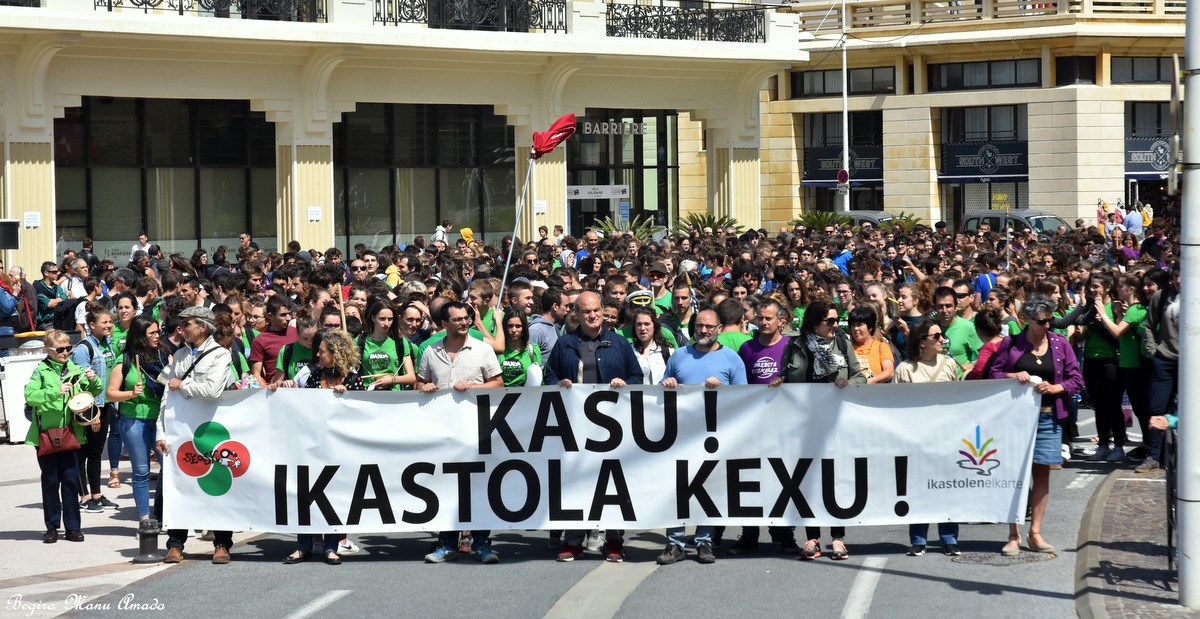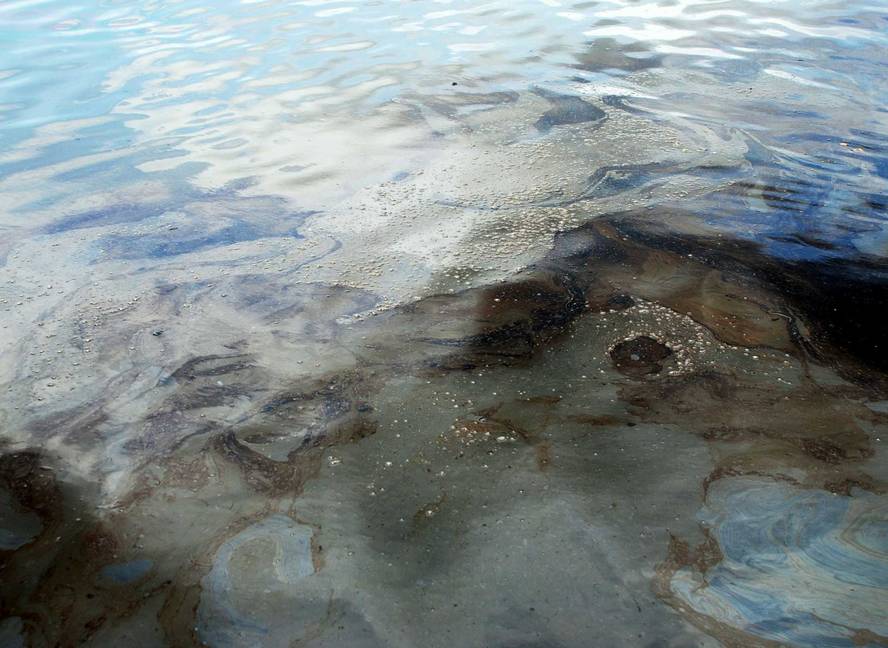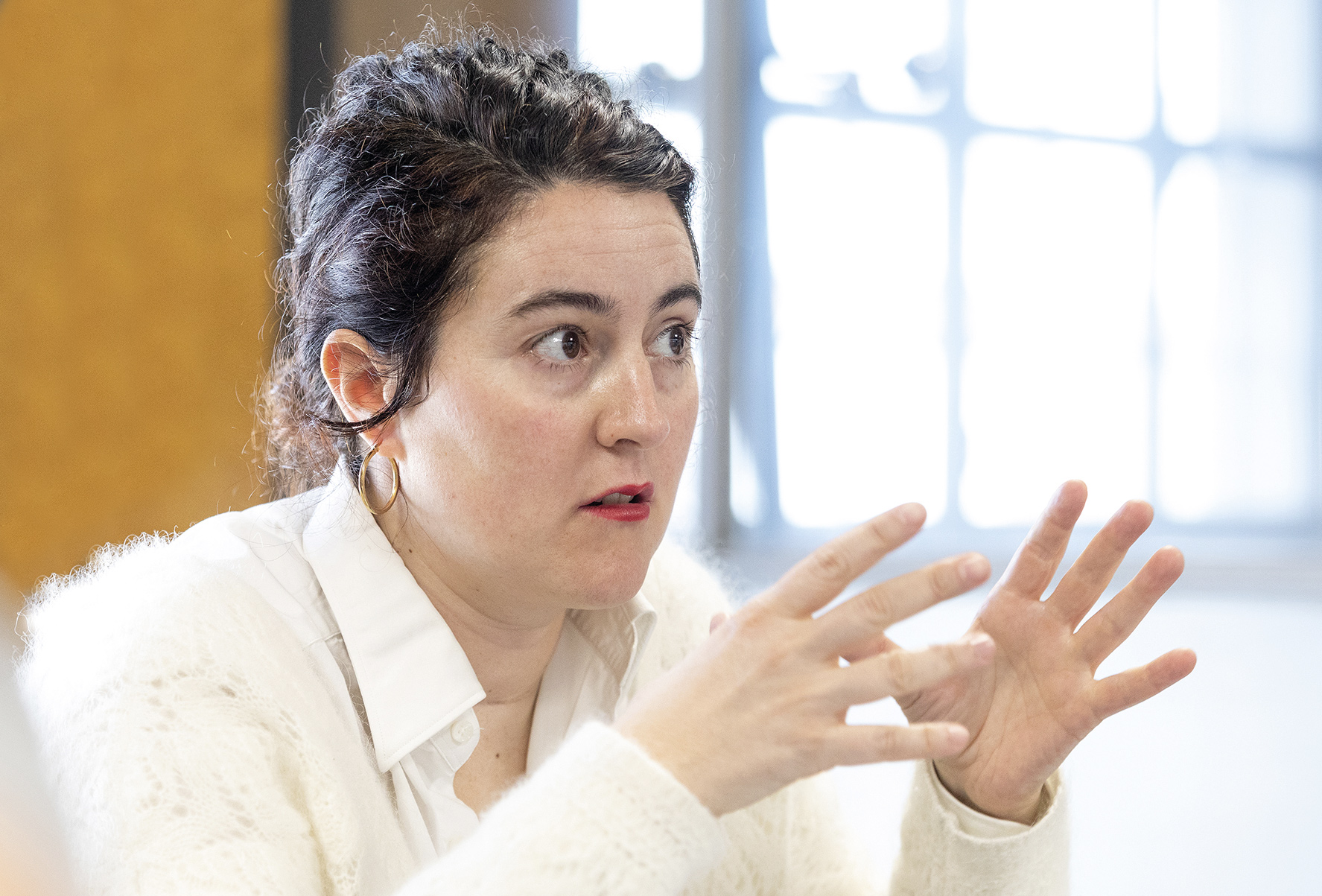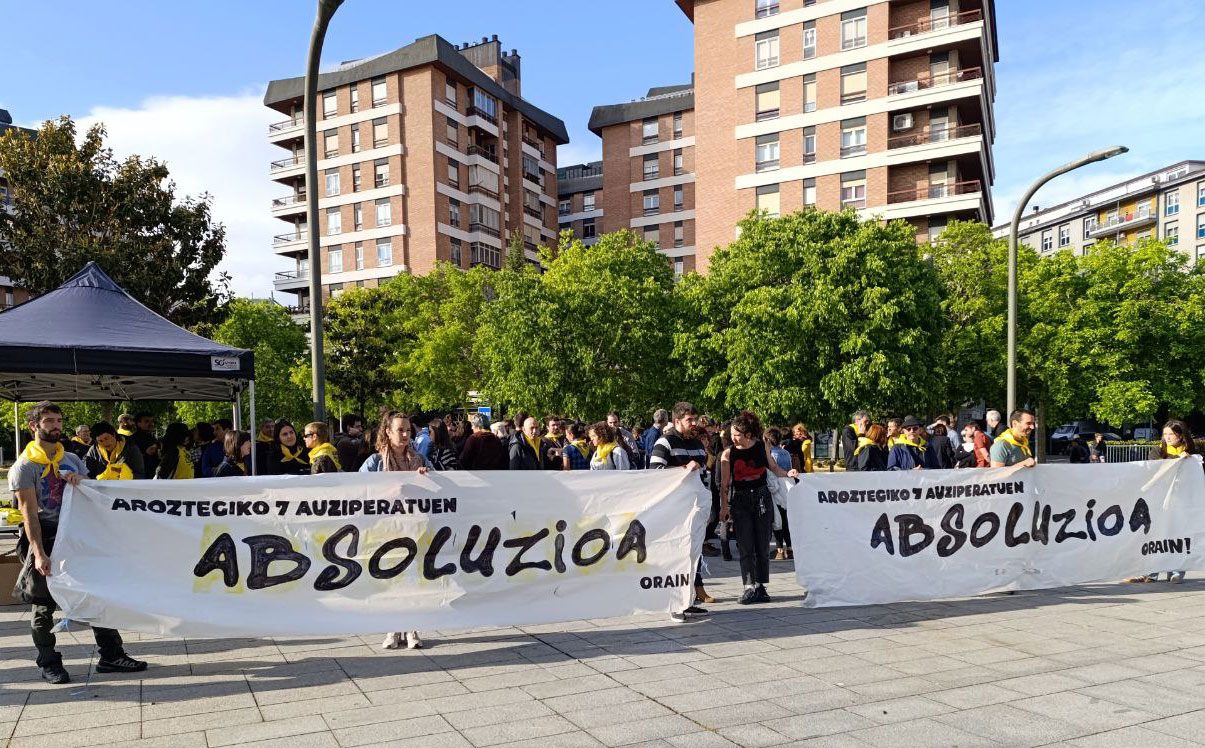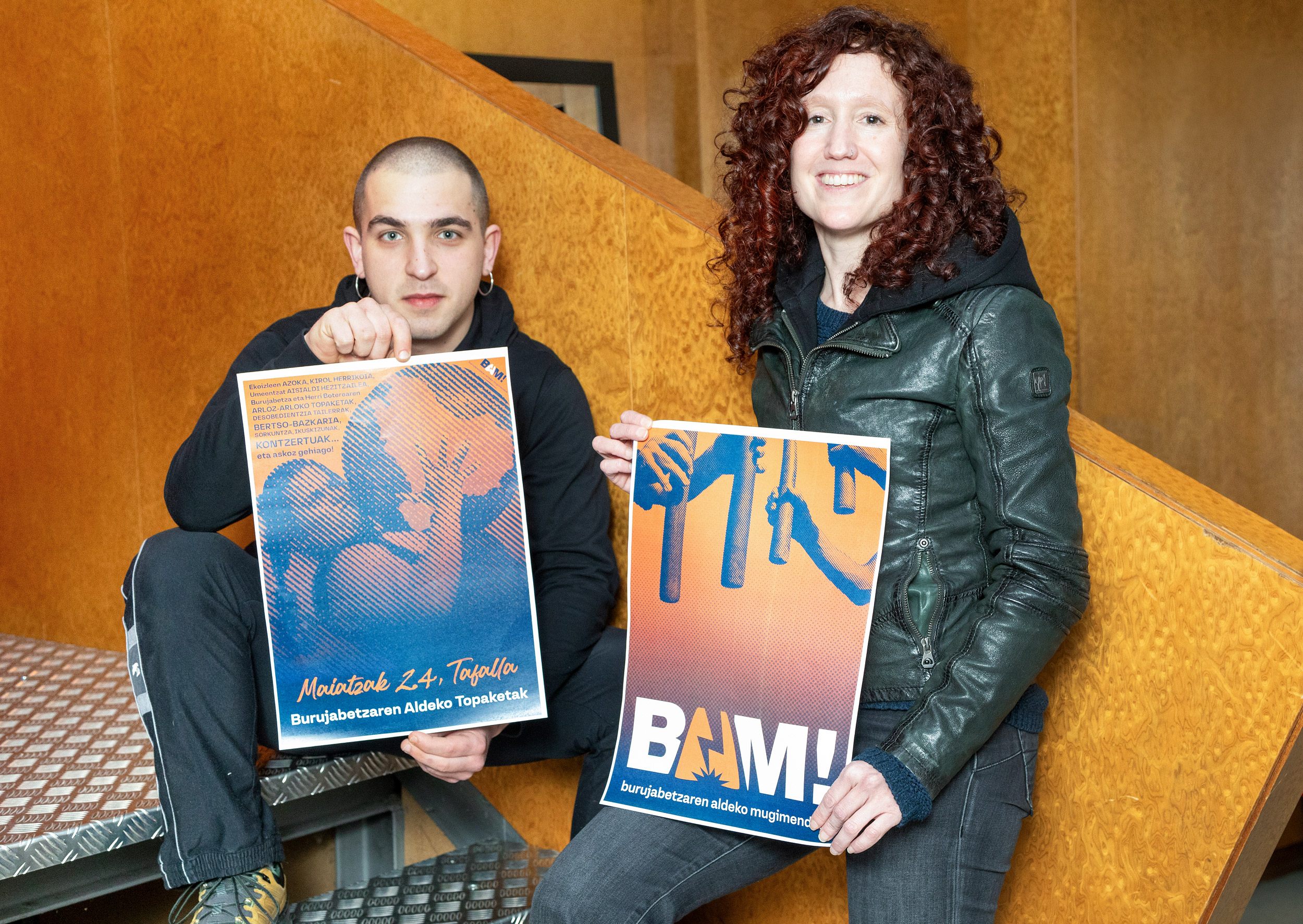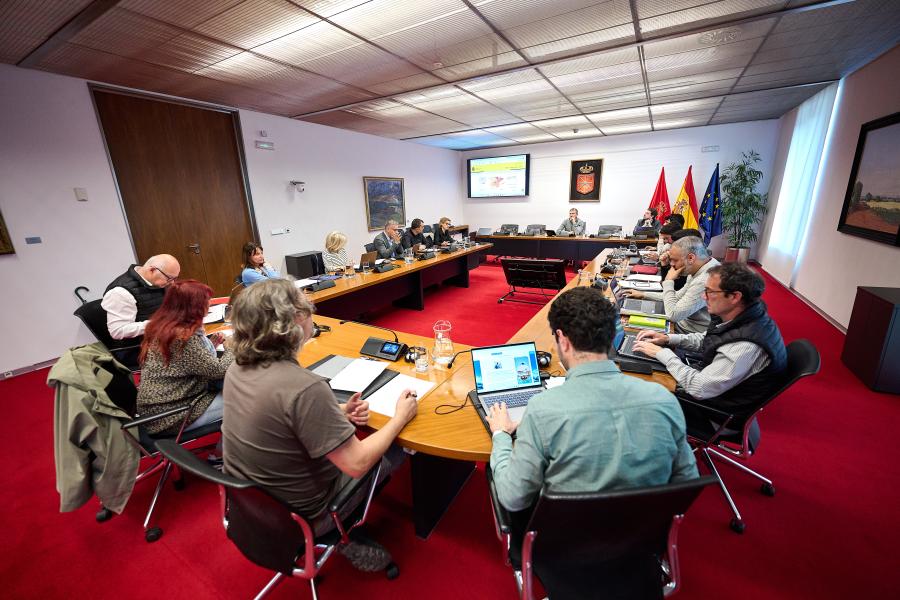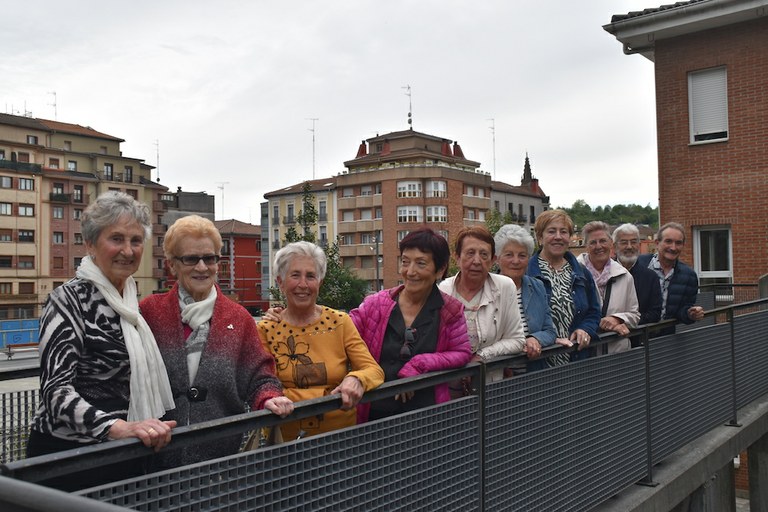"We say poetry is dead, and yet it serves me."
- During the day, Iñigo Astiz (Pamplona, 1985) is a journalist from Berria and at night he becomes a poet. He has published with the editorial Susa the book 'Also Residues', a book that goes from the plagios of Peicovich to the simplicity of Li Bai, passing through the intimate spaces of the writer.
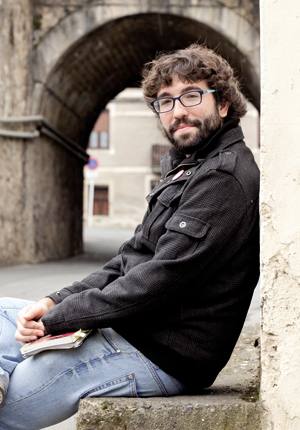
You take a little bit of land, put yourself in your mouth and talk about feeling “like a person” in the poem Experiment geófago l(ab)orategi that opens the book. Is it a personal reading of the Basque?
That is the most curious thing, that if a Basque speaks of land or geography he refers to Euskal Herria. And you can also talk about that, the experiment is very carnal... It is precisely in that experiment that what is fun is that from that incarnation you come to an idea of territoriality, that contrast has fun for me.
Objects, concrete places, are especially important in poems. Chairs, light switches, walls of Pamplona…
When I write the poems I use the material I have around and it can be a phrase from Alberto Caeiro’s book I am reading now, to use it as a trigger; it can be garden land, because it is there; they can be household objects… I don’t know if the moon appears…
I don’t think that…
…the sun does, but always on the skin… I don’t have capital – and not just money – to use things that are beyond hand. It’s more or less… poetic ecology [laughs]. Things serve to concretize abstract ideas. The example I've heard the most about my whole life is chairs. “That’s like a chair” or “that’s like a table.”
Chairs and tables, all right. But audioguides?
Museums are places of all kinds and when an audioguide explains “here is a piece of Babylon” and you take three steps and there is another object that you bring from there I don’t know how many kilometers and it takes three centuries and while it is explaining to you the audioguide that in the Second World War some of the roof of the museum was damaged because a bomb fell… What anguish, no? Here's it all, let's get out of here right away! But we've all used some kind of audioguide; that poem can be a claim, that in those remains of life there's also a little bit of poetry.
It seems that the poem ETB1 poses a clash between reality and hyperreality.
I've read Jean Baudrillard and there he is, I don't know how far he has walked to the poem because, it's a very simple thing, I'm on the couch, I see ETB, I see sea lions, they make me graceful… But the hyper is there. The book also shows the body, the flesh, the seed… things that can be touched with the hand. There is a contrast between the two. [Television has become very high in the bar where the journalist and interviewee speak]. Do you want us to change your table?
Yes. [The journalist and the interviewee walk away from hyper-real television]. Plagiarized poems of Esteban Peicovich…
Yes, I've plagiarized.
So the poem on the phone guide has come out of there?
Yeah, I saw it, and I said, "That's good." He has written poems with the guide of Buenos Aires and with the guide of Madrid and said “I will do it too”. Then I thought it was plagiarism, but I said, "What fear will I have for plagiarizing a book called plagiarized poems?" There is more plagiarism in the book… Well, in the cinema it is called “tribute” to that: There's a poem translated from Philip Larkin, not only in language, body and reality, but also in a poem by Allen Ginsberg. And there are many other poems, not translated or stolen, but ... I don't know, I've done the following. “Li Yes, I will cast it against Keneth Rexroth, to see what happens,” and a poem comes out, what a mess!
He has worked as text-jockey.
In the tertulia of Euskalerria Irratia, Angel Erro, Hedoi Etxarte and the trio we formed the three we call Poeta Zonbien Club. It is a claim: “Poetry is dead, but listen, I have found the body and I will eat” [laughs]. It's a Frankenstein poetry, grab a poet's leg, hold another's arm, and look at what a pretty monster.
The book’s imaginary is urban, but… Can you say you’ve searched for an orchard beneath the asphalt?
I don’t know if it’s so urban, I don’t know if I’m urban or rural… I think the book is in a tension, between the orchard and the asphalt, between the elevator and the John Deere tractor… I don’t know if I’ve searched the beach under the stones, I think it’s just enough to lift stones. It's a proposal to see what's underneath, and if there's crabs, we'll make a cornish. There is also a call for intermediate things. Contemporary union poetics, for example, is not a poem about revolution, but about a succession of revolution. There is attention to these substitutes, critical, yes, but not to say “this is no use at all”, but to say “there is a possibility to do poetry here”. The waste also goes there: we say that poetry is dead and yet it serves me; we say that Euskal Herria has no state, and yet it serves me; we say that the revolution is over, and yet we dedicate seven hours to discuss whether we have to say “late” or “not on time”, that also serves me. I mean, you can also do something with the things that are available.
The weight of time in the book is striking, as in the poem Face-to-face experiment on the stairs. Do we calculate too many snapshots?
The importance a moment can have in your life is impressive. And it can be any time, you have a car accident for a moment; a caress lasts for a moment and can ruin your life, because you know that caress is what it was worth -- that's been very romantic -- we look for the smallest moments, although, thank God, it lasts for more than a moment. It can be marginal if we take this in its raw reality, because moments are sold, but processed, as studied. But then there are raw moments that interest me a lot, not just for poems.
The book goes from the intimate to the common spaces, as is the case of Euskal Herria, the last poem.
Anyone who comes from a more or less nationalist family has a very intimate relationship with the Basque Country; and if you work in Basque journalism, you understand very well what personal sacrifice and supra-personal sacrifice is. At least I live it, I think the larger spaces are also related to intimacy. Abstract ideas and concrete bodies appear constantly in the book of poems, and when they are put together they chail sometimes, they chail others… And that intimacy, often, seems to have been misunderstood from the national construction: [The swamp and the Union of Peio begin to sing] “We will leave the futures”… And what is the future? What about after is making stone? Then you set aside a whole struggle, that of feminism in that case. In that intimacy there are great struggles, in that intimacy the world passes; that's no small thing, that's what the feminists said: “The personal is political.” Many times it seems that we mean “Euskal Herria is this”, but that must be contrasted with bodies, you cannot organize one thing by forgetting bodies; and you cannot live the body by forgetting everything else.
Some of these texts were read in Euskalerria Irratia. After writing to emit through the waves, how do you see them now in the book?
I've seen the book now, and I keep thinking it's not mine. It is also seen as a collection of poems, organized with more or less grace, but it was not thought to be a book. The reader will see more books than I do.
How does a good book of poems like this house with the bad reputation that journalists have in the world of texts?
From 10 o’clock in the evening… and I don’t think they get married; or, if they get married, it’s like the couples of the Italian films [imitates a couple who shouts in Italian from sapo]. The biggest difference is the delivery date, the articles always have them and the poems do not. No one expects anything, no one knows if I'm writing poems, the world doesn't care, I don't care, I don't care about it at times... I'm playing my life with this, but no matter how important it is, I know it's a book of poems. The lack of expectations, the fact that in principle it is a negligible thing, gives me the freedom of Christ to do what I want.
But is it a silly thing?
It's very different from journalism. It's not useless, but it doesn't have an immediate role, with which no one is going to prepare the food in less time to get to work faster, which may be a current need. And it's not just a function, it's expectations. Whether you do it or not, nobody will hold me accountable for the poems. With the articles, yes. And that's the most amazing thing for me, to the point of plagiarizing poems to others.
231.000 panel jarriko dituzte, Arabako hego-mendebaldeko ehun hektareatan zehar: Armiñonen. EUskal Herriko bigarren eguzki parke handiena izango da.
PPk Senatuan proposatu du, gainera, euskal preso politikoek damua erakutsi behar izateko xantaia areagotzea.
Maiatzaren 22an EAEko Legebiltzarrak mila milioi euro zorpetzeko lege proiektua onartu du “zientzian, teknologian, enpresan eta industria sektorean eragiteko”. Naiz hedabideak jakitera eman duenez, Eusko Jaurlaritzak KPMG Asesores SL enpresari eskatu dio plana... [+]
Donostiako Parte Zaharreko maizter batek 11 hilabeterako alokairu kontratua bost urterako legezko kontratu bihurtzea lortu du.
Washingtonen Israelek duen enbaxadako bi langile tiroz hilda agertu eta gero egin ditu adierazpenak Netanyahuk. Israelgo Gobernuak zuzenean lotu ditu Washingtongo erasoak eta Europako zenbait gobernuburuk Gazako sarraskiaren aurka egindako adierazpenak.
Mireia Centeno Gutierrez psikopedagogoak haurren elikaduraren inguruko zenbait gako eman ditu; hala nola jatera behartzeak eta jakiak debekatzeak dituen ondorioak aipatu ditu.
The defendants testified on Thursday, and their statements could be summarized as follows: The citizens who gathered in the square of legumes or in the camping area decided collectively what to do, in general, to go to the field of the works and put them passively in... [+]











